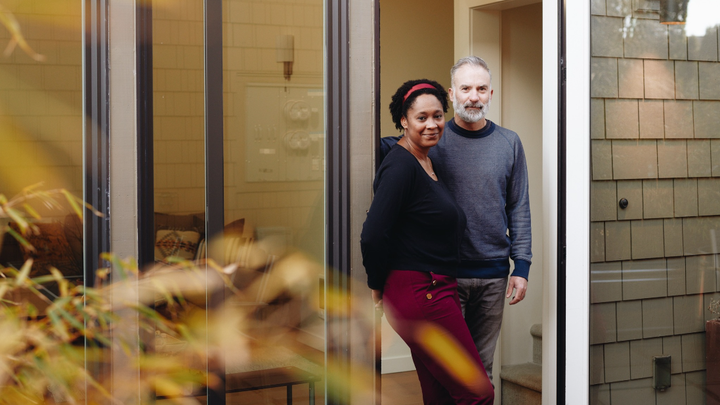How you can support emergency stays in times of crisis
When natural disasters or large-scale conflicts force people to flee their homes, one of their most urgent needs is finding a place to stay. Short-term housing gives them space to focus on other priorities and make longer-term plans. You can make an impact by hosting emergency stays or donating to Airbnb.org.
What is Airbnb.org?
Airbnb.org is a US 501(c)(3) nonprofit that operates independently of Airbnb. The work started in 2012, when Shell, a host in Brooklyn, New York, offered her place for free to Hurricane Sandy evacuees. Airbnb asked for support from others in the community, and over 1,000 local hosts opened their homes to people impacted by the storm.
Inspired by Shell’s actions, Airbnb developed a program that enabled hosts around the world to offer their places during times of crisis. In 2020, this program became the nonprofit Airbnb.org, with its own mission and board of directors.
Today, Airbnb.org works with governments, NGOs, and humanitarian organizations around the world to connect people with temporary places to stay. Funded by donors, it taps into Airbnb’s technology platform and global community of hosts to respond to natural disasters, conflicts, and other emergencies.
Airbnb.org has provided over 1.6 million nights of emergency stays for more than 250,000 people, including refugees and people displaced by natural disasters. The need for support continues to grow.
How can I donate to Airbnb.org?
You can make a one-time donation, whether you have space to host. If you host regularly on Airbnb, you can give a specified percentage of each payout. Either way, 100% of your donation goes to funding emergency stays (and not Airbnb.org’s operational costs).
How do I become an Airbnb.org host?
If you’re an Airbnb host, you can use a current listing or set up a new one for a different property. You have the option to offer your place for free or at a discount through Airbnb.org.
You can also sign up to host exclusively through Airbnb.org, which means you’ll only host guests in need of emergency stays. In this case, you can only offer your place for free.
Airbnb.org guests stay at no cost to them. Bookings are funded by donations. By offering your place for free or at a discount, you can help donations go farther and provide emergency stays for more people.
Airbnb covers all of Airbnb.org’s operating costs, so 100% of donations go directly toward providing emergency housing. Airbnb makes no money on these stays. Reservations are protected by AirCover for Hosts.
Who are Airbnb.org guests?
Airbnb.org guests are often referred or supported by organizations that specialize in crisis response and refugee resettlement. Guests can’t directly apply for an emergency stay through Airbnb.org.
Guests who are eligible for emergency stays include:
- People affected by major disasters, and relief workers responding to those disasters in an official capacity.
- Refugees, or people in the process of seeking asylum, a Special Immigrant Visa, or another immigration status with a similar humanitarian purpose.
Eligible guests may receive an Airbnb.org credit to book an emergency stay, or a nonprofit partner may book on behalf of the guests and manage communication with the host.
Your space can provide comfort to people in times of crisis. Dima, an Airbnb.org guest in Berlin, left Ukraine in 2022.“I was so emotional those first days,” Dima says. “I don’t even know which part was more important for me: being in a safe space or just understanding the amount of support that I’m receiving.”
Will guests know I’m an Airbnb.org supporter?
Yes. Signing up to offer emergency stays for free or at a discount, or setting up recurring donations from payouts, earns you an Airbnb.org supporter badge on your host profile.
Millions of people around the world are displaced from their homes due to conflict and disaster. You can make a meaningful difference in the lives of refugees, evacuees, and relief workers by opening your home, or making a donation to support emergency stays.
